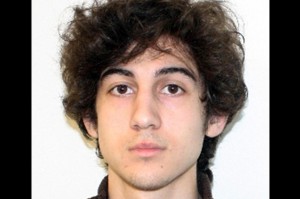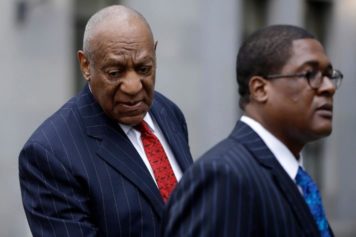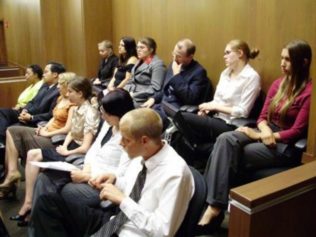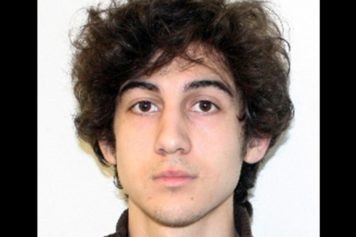
Tsarnaev is facing death in the two-year-old case that is scheduled to start on March 4, but his lawyers are trying to apply an exacting application of jury rules, which states that the pool is supposed to be selected randomly. His lawyers claim the randomness of the process was tainted when the 1,373 people—who were summoned from a population of about 5 million in eastern Massachusetts—had their original randomly-assigned jury pool numbers changed when the court decided to assign numbers based on when the jurors reported to court to complete written questionnaires.
The judge did not immediately rule on the request.
Tsarnaev, 21, is accused of carrying out twin bombings at the 2013 marathon that killed three people and injured more than 260.
Why would Tsarnaev’s lawyers care how many Black jurors were in the pool?
The answer to that question may lie in the work done by researchers from Northwestern and Harvard in the lead-up to the trial. They were curious about whether white people’s judgment of what should happen to Tsarnaev would change whether they saw him as white or not.
Dzhokhar and his brother, Tamerlan, who is now dead, both hail from the Caucasus region, the area that includes the countries of Armenia and Georgia and that separates Europe and Asia. It is the region where the word “Caucasian” comes from, though historically it was part of the Iranian world until it was conquered by the Russian Empire at the beginning of the 1800’s.
What the researchers found was that when white people were asked whether Dzhokhar was white or not, the less white they perceived him to be, the more harshly they were willing to punish him.
It is a phenomenon that legal experts have been aware of for many years concerning Black defendants, which is why attorneys fight so hard to find Black jurors when their clients are Black—and why prosecutors fight so hard to exclude them.
The researchers found white people were not quite sure whether they should label the Tsarnaev brothers as white. On a scale from zero (nonwhite) to 100 (white), the responses ranged from zero to 100, with the average around 64.
The researchers found that the participants who scored high in social dominance orientation (believing that some groups are superior to others) and high in right-wing authoritarianism (believing in the importance of following traditions and respecting authorities) were less likely to perceive the Tsarnaev brothers as looking white, steering them into “outsider” territory.
The researchers also found that the lower individuals rated Tsarnaev as looking white, the more willing they were to punish him severely.
“In a case like Mr. Tsarnaev’s, where guilt is widely presumed and where the outcome will most likely fall on one side of the line between life imprisonment and death, this finding seems especially relevant,” the researchers wrote.


